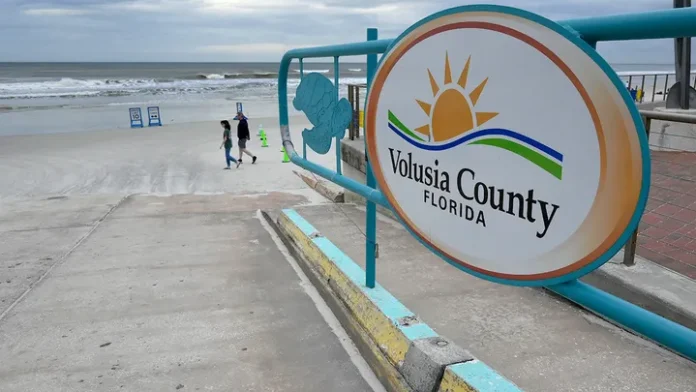A 14-year-old boy experienced a shark bite during a lifeguard training camp in Florida on Monday morning, according to officials from Volusia County Beach Safety (VCBS) who confirmed the incident to Fox News Digital.
The incident occurred around 11:15 a.m. at Ponce Inlet, a popular beach area north of the jetty. The boy, participating in the Junior Lifeguard Camp, was entering the water when he was bitten on the right calf. Witnesses reported that as he dove into the water, he landed on the shark, prompting the attack.
Volusia County, particularly renowned for its beaches, is famously dubbed the “shark capital of the world.” The species involved in this incident was identified by witnesses as a 4 to 5-foot-long Black Tip shark, commonly found in the area’s coastal waters. Despite sustaining non-life-threatening lacerations, the boy received immediate on-scene treatment before being transported to a hospital.
According to records from the Florida Museum of Natural History’s International Shark Attack File, Volusia County has garnered a reputation over the years for shark encounters. As of the latest incident, there have been 351 documented shark attacks in the county since records began in 1882.
Apart from Volusia County, Florida as a whole has recorded numerous shark bites, totaling 16 incidents in recent records, making it one of the most impacted states. Hawaii follows with eight unprovoked shark bites recorded in 2023.
Shark attacks typically peak during certain months in Florida, with September historically witnessing the highest frequency since records began in 1926. However, July, August, and October are also prominent months when such incidents occur along Florida’s coastlines.
Earlier in June, Walton County faced beach closures after consecutive shark attacks occurred, highlighting ongoing concerns and precautions along Florida’s expansive shoreline.
The incident underscores the complex coexistence between humans and marine life in coastal regions, particularly in areas where recreational activities intersect with natural habitats. Authorities and marine biologists emphasize the importance of understanding shark behavior and implementing safety measures to mitigate risks while enjoying coastal activities.
Beach safety protocols and public awareness campaigns play crucial roles in educating beachgoers about shark safety and responsible beach practices. Volusia County and other coastal communities regularly update safety guidelines to enhance visitor safety and minimize potential conflicts with local marine wildlife.
Local residents and tourists alike, maintaining vigilance and adhering to beach safety advisories are essential components of enjoying Florida’s coastal amenities. With ongoing research and advancements in marine conservation, efforts continue to promote sustainable coexistence between humans and marine life along Florida’s diverse coastline.
The incident serves as a reminder of the dynamic ecosystem that characterizes Florida’s coastal waters, where encounters with marine species like sharks are a natural part of the environment. By fostering an understanding of marine habitats and respecting wildlife, beachgoers can contribute to preserving these ecosystems for future generations to enjoy responsibly.
Monitor and respond to shark-related incidents, ongoing research and public outreach efforts remain integral to promoting beach safety and conservation efforts. Through collaboration between communities, scientists, and policymakers, Florida continues to balance tourism, recreation, and environmental stewardship along its iconic coastlines.
The recent shark bite incident involving a teenage boy at Ponce Inlet reflects the ongoing challenges and responsibilities associated with coastal living and recreational activities in Florida. By prioritizing safety, education, and environmental stewardship, stakeholders can work together to mitigate risks and foster a sustainable balance between human activities and marine ecosystems.























